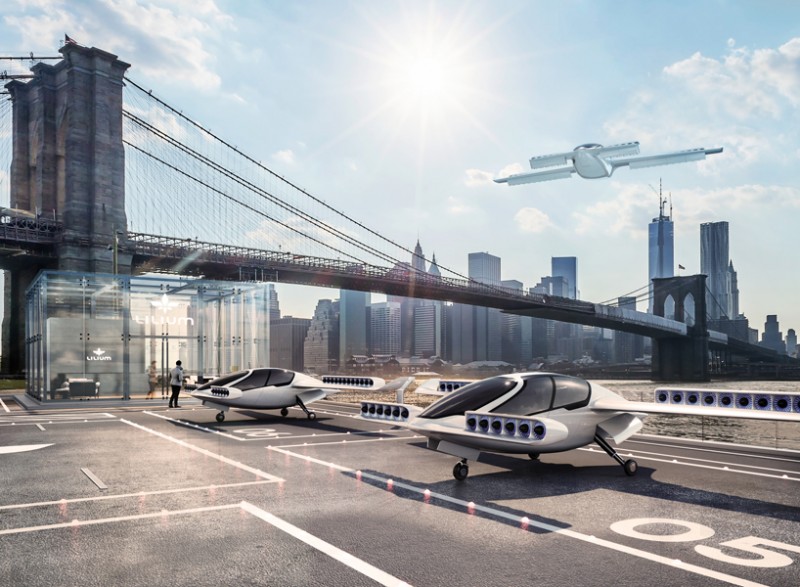Will the aero-taxi become a reality in your lifetime? German tech startup Lilium thinks so. They’ve just completed successful test-flights of their flying EV, which saw the company’s jet-powered prototype lift off vertically, accelerate into forward motion, maneuver, and land.
Lilium’s flying EV is powered by 36 electric engines, which are fixed to the craft’s wings through a dozen moveable flaps, which control ascent, forward motion, and descent. The prototype has a range of about 186 miles; its cruising speed maxes out at about 186 miles per hour.
The concept has been floated (ahem) for years, of course, but has been increasingly of interest over the past decade or so. Airbus and Google, too, have worked on the idea. Airbus recently unveiled their concept for a flying car, at the Geneva Motor show last month; they plan to test it later in the year.
Lilium’s advancements bring the concept a little nearer to public-consumption fruition: they are working on a five-seat craft for urban shuttling, as well as an on-demand concept service that would allow travelers to schedule a pickup using a smartphone app.
A significant component of Lilium’s leap is in the company’s development of a specialized battery: they claim it to be almost twice as efficient as a drone battery, allowing it to achieve its surprising range and speed specifications. Lilium claims the system is safe, too, as the design constantly holds a certain amount of available energy in emergency reserve.
The R&D cost for such a project must have been staggering. Thankfully, the European Space Agency helped out, providing the startup with not only funding, but the physical space needed for development.
With the help of the ESA, the project has been progressing very quickly: Lilium’s craft could hit the market as early as next year.













